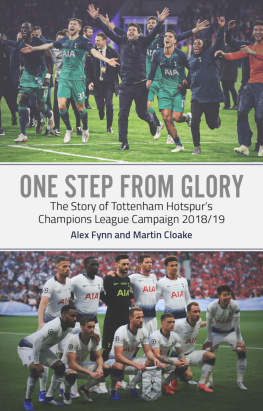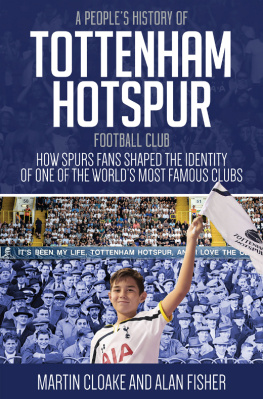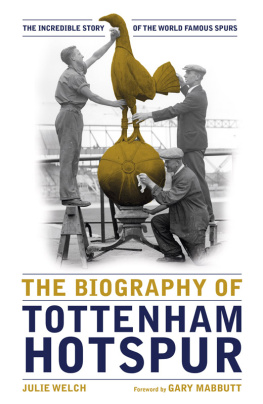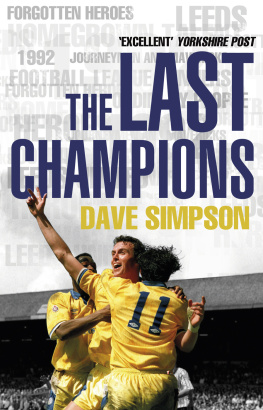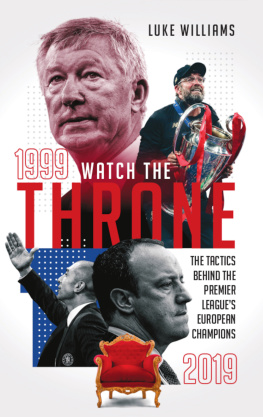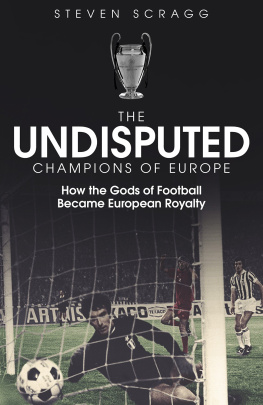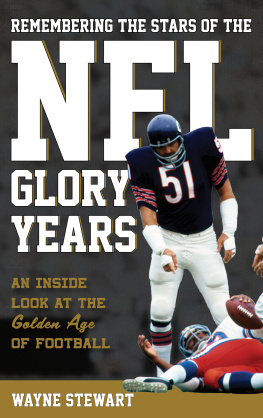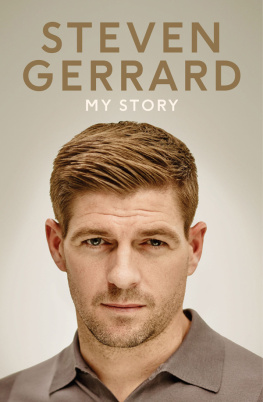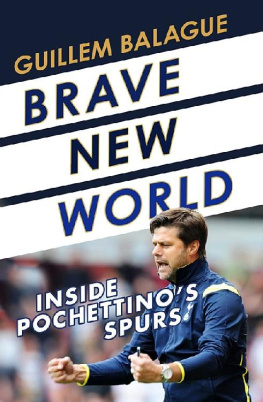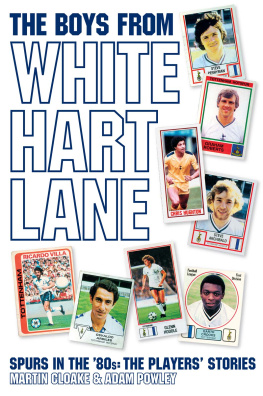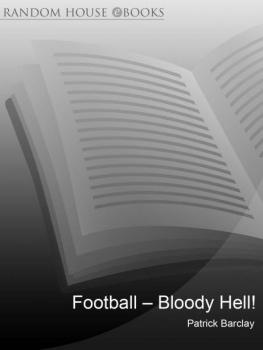First published by Pitch Publishing, 2019
Pitch Publishing
A2 Yeoman Gate
Yeoman Way
Durrington
BN13 3QZ
www.pitchpublishing.co.uk
Martin Cloake and Alex Fynn, 2019
All rights reserved under International and Pan-American Copyright Conventions. By payment of the required fees, you have been granted the non-exclusive, non-transferable right to access and read the text of this e-book on-screen. No part of this text may be reproduced, transmitted, downloaded, decompiled, reverse-engineered, or stored in or introduced into any information storage and retrieval system, in any form or by any means, whether electronic or mechanical, now known or hereinafter invented, without the express written permission of the Publisher.
A CIP catalogue record is available for this book from the British Library
Print ISBN 978-1-78531-598-5
eBook ISBN 978-1-78531-615-9
--
Ebook Conversion by www.eBookPartnership.com
Contents
As a director of Saatchi & Saatchi, Alex Fynn helped create the first advertising campaign for a football club, for Tottenham Hotspur, back in the 1980s. He subsequently advised the FA, the Football League and several Premier League clubs on media and marketing. This is his fourth book on Spurs.
Martin Cloake has supported Spurs since the early 1970s and has travelled all over Britain and Europe to watch the team. A writer and editor, he has co-authored six previous books on the club, including two award-winning official publications.
Also by Alex Fynn
(with Lynton Guest) The Secret Life of Football, Heroes & Villains, Out of Time, and For Love or Money
(with H Davidson) Dream On
(with Olivia Blair) The Great Divide
(with Eric Cantona) Cantona on Cantona
(with Kevin Whitcher) The Glorious Game, Ars nal: The Making of a Modern Superclub and Arsne and Arsenal
Also by Martin Cloake
(with Adam Powley) We Are Tottenham and The Boys from White Hart Lane
(with Adam Powley and Doug Cheeseman) 61: The Spurs Double, The Glory Glory Nights and The Lane)
(with Alan Fisher) A Peoples History of Tottenham Hotspur Football Club
In memory of Ralph L. Finn,
Tony Fuller and Daniel Stern
Miss you most at times like this
Acknowledgements
IT WILL be obvious that this book could not have transpired without the help of many people, so first and foremost in the queue for thanks is Jane Camillin without whose enthusiastic backing there simply would not have been a book. So heartfelt thanks to her and to Katrina Law, Alan Fisher, Bernie Kingsley and David Stern, Spurs stalwarts who kindly read the manuscript, pointed out errors any that remain are entirely our fault and made suggestions, the majority of which were adopted to the benefit of the manuscript.
Grateful thanks are due to Duncan Olner for his eye-catching cover design, to Dean Rockett for his skilful copy-editing and to Graham Hales, typesetter par excellent. Greville Waterman was a constant source of support as was Rhoda Fynn, who compensated for her husbands lack of computer skills. The understanding of Cath Mackenzie, Danny and Tom Cloake was increasingly essential as deadlines drew near. Thanks are also due to Adam Powley and Michael Green, as they are to all the fans who have enriched the writers matchday experience in a most momentous season.
Match reports from The Telegraph, The Guardian, The Times and The Independent provide the underlying theme so permission for their use was a prerequisite. So thanks for granting this to Ruth Marsh at The Telegraph, Nick Shackleford and Andrew Pulver at The Guardian, Bill Burrows and Miguel Delaney at The Independent, and Tim Hallissey, Robin Ashton and Marc Cutler at The Times. And to those reporters whose skill in producing 700-plus words of instant insight and analysis against such tight deadlines never ceases to amaze. So thanks to Sam Wallace and Matt Law (The Telegraph), Daniel Taylor and David Hytner (The Guardian), Miguel Delaney (The Independent), Henry Winter and Alyson Rudd (The Times).
The authors and publisher would like to thank Getty Images for permission to reproduce the photographs in this book.
Introduction:
Memories are made of this
IN 1961 to commemorate Spurs Double-winning season, Ralph L. Finn wrote Spurs Supreme, modestly sub-titled, A review of soccers greatest ever side 1960-61. It became former Spurs chairman Irving Scholars favourite book. As he explained, it recorded every game played that season by way of re-printing at least one newspaper report. I must have read it at least 50 times over, never tiring of its content.
Back then, very few matches were broadcast on black and white television (Match of the Days highlights first began in the London area on BBC2 in 1964). So match reports in the daily and Sunday newspapers supplemented by the occasional second half radio commentary and Sports Report on the BBC Light programme were the chief means of finding out in detail how your team fared. Today of course, all major matches are available instantly on pay television, internet and your phone, giving rise to immediate debate on Twitter, Instagram and radio phone-ins. The omnipresence of information notwithstanding, newspaper reports still provide an essential service for the football supporter: articulate, sometimes eloquent reporting and analysis viewed through an expert eye providing an authoritative and objective permanent record of key events.
Match reports taken from the Telegraph, Guardian, Times and Independent provide the narrative thread for One Step from Glory; a comprehensive account of Spurs most successful season in European footballs premier club competition.
If we are not in Europe, we are nothing, said Bill Nicholson, the clubs most successful manager. Spurs and Europe is an ongoing love affair encapsulated by those glory, glory nights at White Hart Lane under floodlights against continental opposition which has defined Spurs. And that love affair has been rekindled in earnest in 2019.
Of course, the last chapter could so easily have had a Hollywood ending but as Danny Blanchflower, the captain of Spurs Double-winning side, memorably said, Football is not really about winning or goals or saves or supporters its about glory. Its about doing things in style, doing them with a flourish; its about going out to beat the other lot, not waiting for them to die of boredom; its about dreaming of the glory that the Double brought. This is why the Spurs 2018/19 Champions League campaign so unexpected, so unimaginable, the most improbable of dreams touched the heart of every Tottenham Hotspur supporter and gave so much pleasure to the many millions of followers of the glory game.
1
The Spurs Way
THE SPURS Way is not the name of a road leading to the new stadium, but it is a route that will run through this story. It is central to the identity of Tottenham Hotspur FC and understanding it is the key to achieving any kind of success at Spurs.
One of the enduring attractions of the game is that, despite the increasing application of science, outcomes often defy rational analysis. The Spurs Way is a romantic concept in a hard-headed world and is part of what enables football to stay a sport, rather than a manifestation of statistics. As Danny Blanchflower, the captain of Tottenham Hotspurs 1961 Double-winning team, once said when asked who would win a match he was co-commentating on: I dont know, thats why theyre playing the game. If we know who is going to win, what is the attraction of watching? If the club that has the most money, that pays the highest wages, that accumulates what are statistically proven to be the best players is guaranteed victory, football is no longer a sport.

